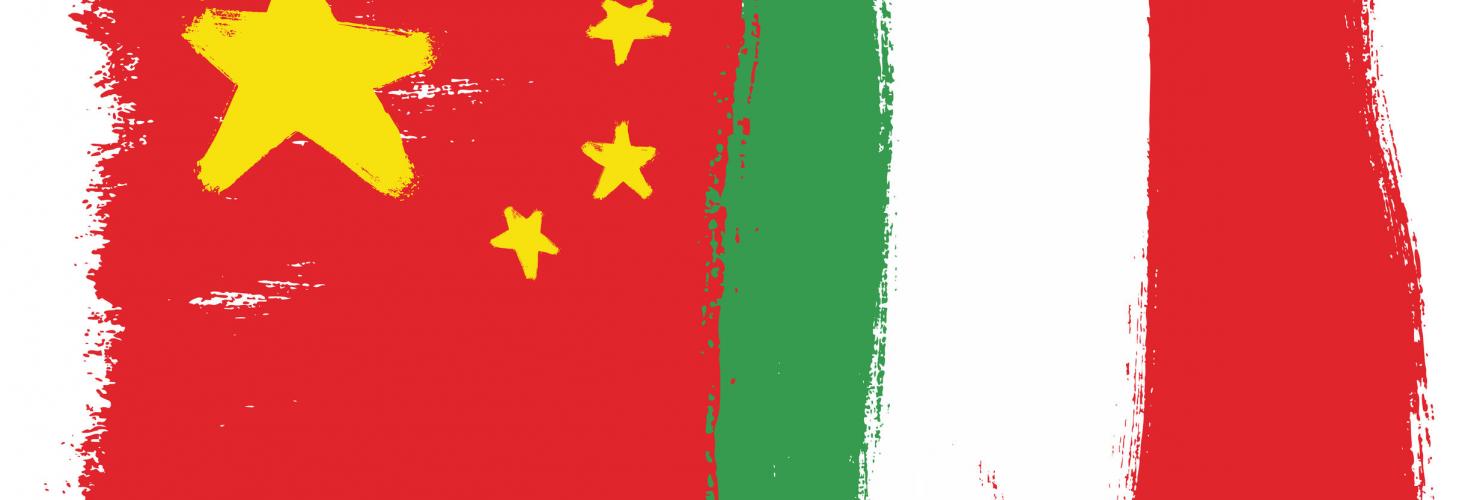

Italy charts risky course with China-friendly policy
Italy’s right-wing populist government has embarked on a course of all-out cooperation with China, presenting it to the Italian public as an alternative, while alienating European partners. Ultimately, a more active China policy that lacks balanced assessments is setting Italy on a risky route.
Since the formation of the coalition government of the anti-establishment Five Star Movement (5SM) and the right-wing League on June 1, 2018, Italy has started to craft an unprecedentedly active China policy. Traditionally, Italian foreign policy had mostly focused on relations with Brussels, Washington and partners in the Mediterranean region.
Now, within less than five months, the government set up a “China Task Force” under the Ministry of Economic Development, and announced Italy’s plan to become the first G7 member to sign a Memorandum of Understanding on the Belt and Road Initiative (BRI). The government also stated its intent to position Italy as a leader in cooperating with China’s industrial upgrading agenda, “Made in China 2025,” signaling greater openness to the kind of Chinese investments that have raised fears of a sellout of sensitive technologies or critical infrastructure across Europe.
The China Task Force encourages Italian economic actors, especially public ones, to seek greater cooperation with Beijing. Only recently, as part of Economic and Finance Minister Giovanni Tria’s visit to China, four agreements were signed with Chinese state companies and banks. Among the signatories were Italy’s leading natural gas infrastructure and shipbuilding companies, SNAM and Fincantieri, the Bank of Italy and Cassa Depositi e Prestiti – an Italian investment bank whose majority stake belongs to Tria’s ministry. The two governments agreed on cooperating in third countries. At the same time, Italian ports are promoting themselves as better gateways to Europe than Greece’s Piraeus in an effort to attract Chinese investors.
There is no doubt that a more active China policy could bring economic opportunities to Italy, in the form of increased visibility for Italian companies in the Chinese market. Yet the Italian government so far lacks a balanced assessment of its cooperation with Beijing. It mainly relies on the newly appointed Undersecretary of State for Economic Development, Michele Geraci, who has lived and taught economics in China for ten years. Geraci set up and runs the China Task Force with 5SM leader and Deputy Prime Minister Luigi Di Maio – and he enthusiastically promotes measures and deals that welcome Chinese inroads in Italy, including in critical infrastructure.
Architect of China Task Force calls for all-out cooperation with Beijing
Geraci had started to promote himself as the possible architect of a more active Italian China policy in the run-up to the March general election. A few days before his appointment to his present job at the Ministry of Economic Development on June 13, 2018, he previewed his future course in a controversial op-ed on the blog run by 5SM founder Beppe Grillo. He called for a range of China-focused policies. These included proposals for exchange of information with China in the realm of public security, at a time when Beijing is increasing state control over people’s lives through surveillance technology and other means.
Geraci also outlined a plan to realize 5SM and League’s election campaign promises, namely the universal income and flat tax. For example, he thinks that Chinese investments would help Italy implement the proposed tax system. The op-ed prompted a group of Italian scholars based abroad to publish a letter criticizing what they viewed as a naïve belief in a “Chinese panacea.”
The deals envisioned by Geraci may indeed create precarious dependencies on China, especially as the 5SM-League government is set to vote on a budget that breaks EU rules incorporated into the Italian constitution – a step that would leave Italy without access to financial assistance under the European Central Bank. In Greece, COSCO’s acquisition of the Port of Piraeus put Greek jobs at risk and contributed to a worsening of labor conditions. Italy’s growing dependency on China could also have far-reaching consequences for European China policy. Just as Greece has done in the past, Italy might sacrifice a common EU China policy for fear of losing access to Chinese investment.
Italy’s China policy shift alienates European partners
Italy’s new strategy for China marks a radical shift on investment, BRI and other issues. Of course, previous Italian governments also looked to China for economic opportunities. In 2017, Italy’s president Sergio Mattarella led a huge business delegation to Beijing. The prime minister at the time, Paolo Gentiloni, attended the May 2017 Belt and Road Summit in Beijing, hoping that Italy would become a protagonist along the BRI.
This outreach was however not based on a general China-friendly policy. Just as France and Germany, the previous Italian government was cautious about allowing Chinese takeovers in strategic sectors. It co-signed a letter with Germany and France that started discussions over setting up an EU investment screening mechanism in Brussels. Earlier this year, Italy’s ambassador to China signed a report critical of BRI along with other European heads of missions.
Until a few months ago, 5SM founder Grillo shared this skepticism. The 5SM came out strongly against China’s unfair trade practices in the past. The populist party has now reversed its previous positions.
In a snub to Germany and France, Geraci said that Italy does not want an investment screening mechanism at the EU level. He has scoffed at Lufthansa’s plans to buy struggling Alitalia, saying that he would prefer selling part of the Italian flagship airline to Chinese investors. This, according to Geraci, would allow Italy to keep control of Alitalia in Italy’s “public hands with [Chinese] private capital.” Geraci is overlooking the fact that Communist Party (CCP) officials are often directly involved in management decisions of Chinese “private” investors.
And while the UK and other western democracies have raised national security concerns about Huawei’s involvement in the country’s networks, 5SM leaders envisage more cooperation with the Chinese information technology company, worrying Italian intelligence.
The announced Italian endorsement of BRI also marks a major shift, as it entails an embrace of the initiative in principle rather than just seeking selective economic opportunities under the BRI label. Beyond trade, Italy now seems to be interested in setting up a comprehensive partnership with China in an effort to become its main economic and political partner in Europe.
Italian populists are an easy target for China
The ambitious Geraci has filled a vacuum in Italy where a nuanced public discussion on China is largely missing. Not unlike in other European countries, debates on China mostly revolve around economic issues, with limited discussions about security risks.
The rise of Eurosceptic populists has made Italy susceptible to advances from Beijing, which has developed a pattern of targeting European countries with economic vulnerabilities and anti-European sentiment to present itself as an alternative partner and investor.
China’s outreach to Eurosceptic political parties has precedents across Europe. In Germany, the far-right Alternative für Deutschland (AfD) has voiced sympathies for China’s model of economic development. In Greece and Hungary, political elites openly claim that China is filling a vacuum left by the EU.
With its uncritical embrace of China, the 5SM-League coalition not only creates risks for Italy, but also threatens to undermine common European interests. After the UK’s exit from the EU next year, Italy will remain among Europe’s big 5 together with France, Germany, Poland and Spain. A unified European China policy, which French and German officials have been calling for, is currently drifting further out of reach.

